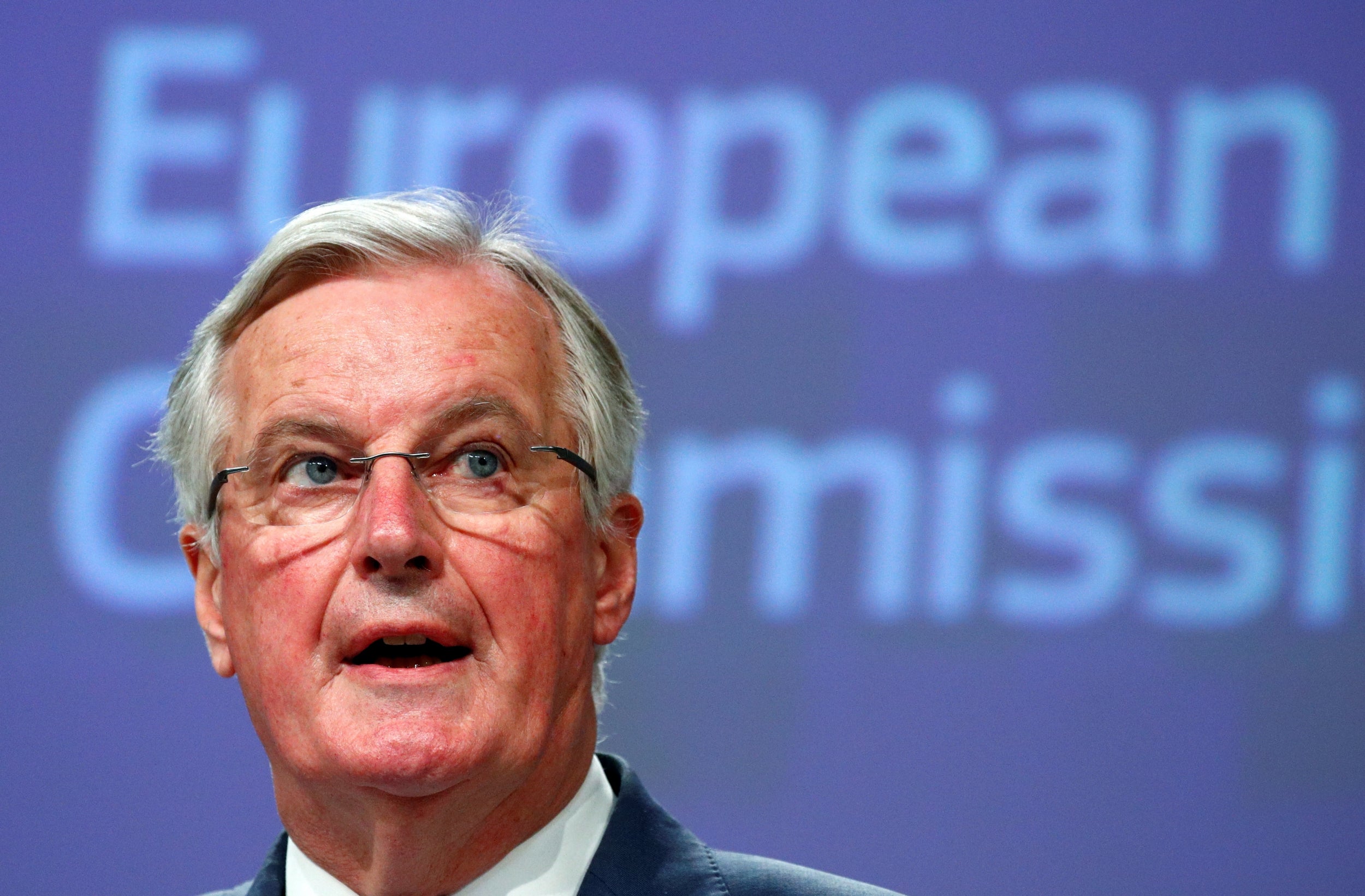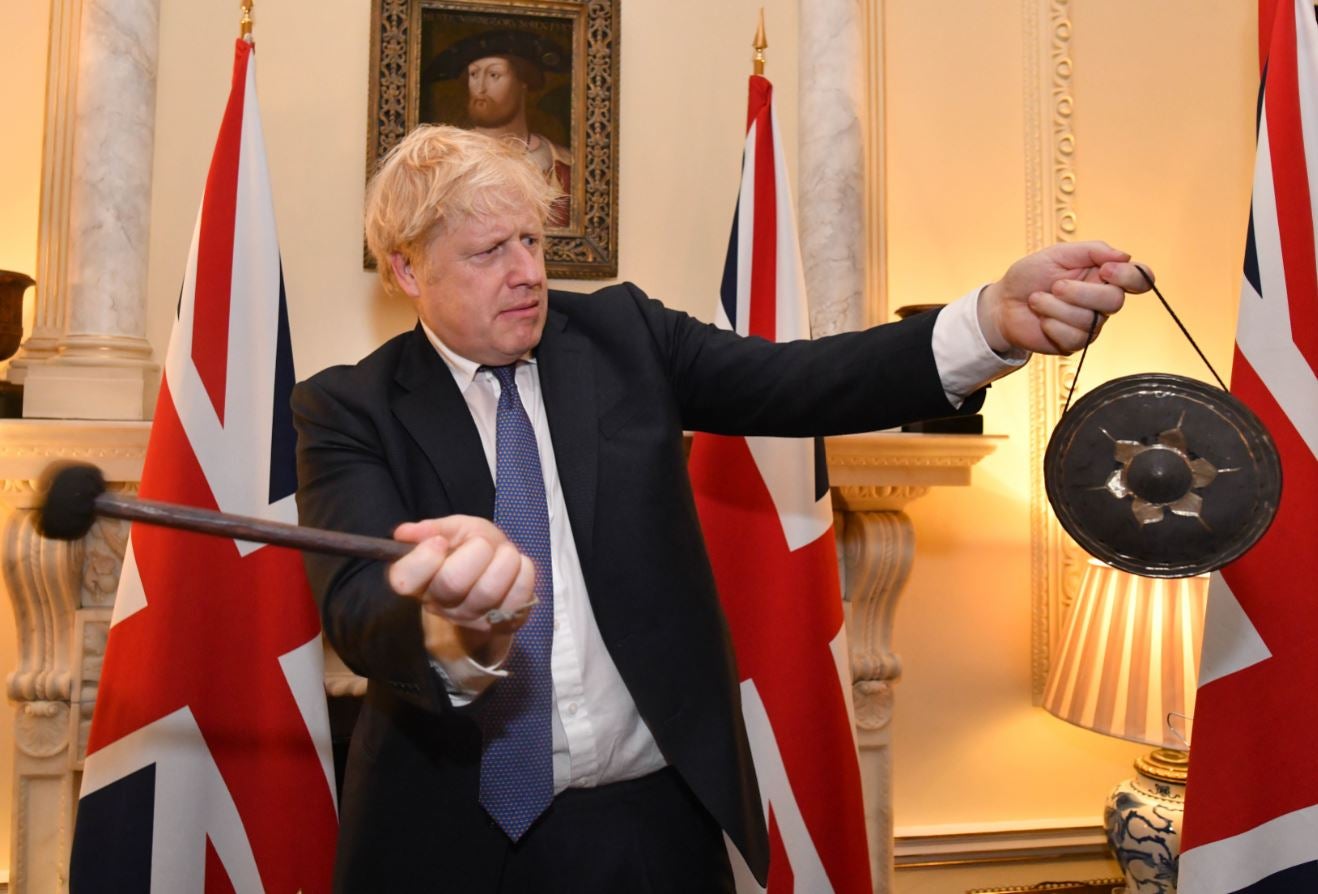Business appeal for government clarity on post-Brexit trade deals
Boris Johnson says he is ready to go for Australian-style arrangement, with no trade deal with EU
Your support helps us to tell the story
From reproductive rights to climate change to Big Tech, The Independent is on the ground when the story is developing. Whether it's investigating the financials of Elon Musk's pro-Trump PAC or producing our latest documentary, 'The A Word', which shines a light on the American women fighting for reproductive rights, we know how important it is to parse out the facts from the messaging.
At such a critical moment in US history, we need reporters on the ground. Your donation allows us to keep sending journalists to speak to both sides of the story.
The Independent is trusted by Americans across the entire political spectrum. And unlike many other quality news outlets, we choose not to lock Americans out of our reporting and analysis with paywalls. We believe quality journalism should be available to everyone, paid for by those who can afford it.
Your support makes all the difference.Business is appealing for clarity on future trading arrangements with the EU after Boris Johnson made clear he is ready to take the country to a no-deal Brexit at the end of this year.
The pound tumbled against the euro and US dollar after Mr Johnson used a high-profile speech to declare he would walk away without a free trade agreement if Brussels insisted on the UK keeping to European rules on state aid or social and environmental protections or being subject to the rulings of the European Court of Justice.
His comments came shortly after the EU’s chief Brexit negotiator, Michel Barnier, said Britain will have to stay aligned to EU rules in a whole set of areas after Brexit if it wants a trade deal.
Launching the EU’s negotiating mandate in Brussels, Mr Barnier said tariff- and quota-free access to EU markets was dependent on the inclusion of “a mechanism to uphold the high standards we have on social, environmental, tax and state aid matters today and in their future developments”.
He warned that the EU would be “very demanding” in its requirements on the UK and that its objective was “to ensure that [regulatory] divergence doesn’t become an instrument for unfair competition whereby there would be disadvantages for EU industry”.
But Mr Johnson insisted that the UK would maintain “the highest standards” in all these areas anyway after Brexit, and that there was “no need” for a free trade treaty to compel adherence to Brussels regulations “any more than the EU should be obliged to accept UK rules”.
However, in a move which will alarm Brussels, he appeared to open the door to accepting genetically modified crops from the US, which are currently banned in the EU. Dismissing objections to certain American agricultural products as “mumbo-jumbo”, he echoed language adopted by US trade negotiators over GM by saying that Britain would be “guided by the science”.
Objections to certain American foodstuffs were driven by “hysteria” and “paranoia”, suggested the prime minister, who appeared to draw a line between chlorinated chicken – which he said was an animal welfare issue – and other controversial American agricultural practices.
“We will not accept any diminution in food hygiene or animal welfare standards,” he said. “But I must say to the America-bashers in this country – if there are any – that in doing free trade deals we will be governed by science and not by mumbo-jumbo because the potential is enormous.”
He added: “I look at the Americans and they look pretty well nourished to me. I don’t hear any of these critics of American food ... complaining about the quality of the food they are offered in the United States. So let’s take some of the paranoia out of this argument.”

The Institute of Directors said the prime minister’s speech suggested “a swing away from prioritising close ties with the EU”.
IoD director Jonathan Geldart said Mr Johnson’s administration needed to quickly provide information about its “specific objectives” to the same level of detail to that provided by Brussels.
“The question for many businesses now is should they be planning to have no trade deal in place for the end of the year,” he said.
“The government must set out how it intends to help smaller firms deal with changes that may come, and some form of adjustment period is crucial. While our members want to make the most of opportunities around the world, a large majority of our members have productive links with Europe, and the EU will be a crucial trading partner going forward whatever happens.”
Meanwhile, the CBI warned that fears of a “bare-bones deal” with the EU – potentially covering only trade in goods – “could pause investment” in the UK.
CBI president John Allan said that “the right signals about the UK’s future relationship with the EU” were needed to turn growing business confidence into investment.
“As the negotiations progress, firms ask the government to take every opportunity to show ambition, building a deal with deep mutual market access while keeping business insight at the heart of their decisions,” Mr Allan said.
In a written statement to the House of Commons, Mr Johnson said the businesses must prepare either for a Canadian-style FTA or a Brexit with no trade deal at the end of the year.
“The question for the rest of 2020 is whether the UK and the EU can agree a deeper trading relationship on the lines of the free trade agreement the EU has with Canada, or whether the relationship will be based simply on the withdrawal agreement deal agreed in October 2019, including the protocol on Ireland/Northern Ireland,” he said.
“In either event the UK will be leaving the single market and the customs union at the end of this year and stakeholders should prepare for that reality.”

In his speech in Greenwich, the PM insisted that it was “very unlikely” that talks would end without an FTA.
And he denied that the choice was now between “deal or no deal”, arguing that the issue had been settled by last week’s withdrawal agreement, despite the fact that it did not cover the issues of trade barriers, tariffs and disruption to ports which are associated with a no-deal Brexit.
He described departure from the EU without a trade deal as being comparable to the position of Australia, which is currently trying to negotiate an FTA.
Mr Johnson did not mention Brexit by name in his speech, saying only: “I won’t even mention the name of the controversy except to say that it begins with B.”
Asked whether the word was now outlawed, the PM said: “It’s not banned. It’s passed. It’s happened.”
But Liberal Democrat acting leader Ed Davey said: “Paying lip-service to free trade after taking us out of the largest free trade zone in the world is nothing short of hypocrisy.
“All it shows is that Johnson is happy to jeopardise our trade with the EU for political gain. Refusing to practically commit to a level playing field is simply not a serious negotiating strategy.
“Boris is gearing up for no deal masquerading as an Australian-style agreement that will hollow out our trade. The Liberal Democrats will continue to oppose his dangerous plans and fight to maintain our most important trading relationship.”
In a separate complicating issue, the EU’s negotiating mandate – due to be approved by national leaders later this month so talks can begin in March – says any trade deal will not apply to Gibraltar.
The mandate says that any “separate agreements” will require “a prior agreement of the Kingdom of Spain” – effectively giving the Spanish government a veto.
Regarding the European Court of Justice’s role in overseeing the deal, one official said: “The European Court of Justice’s role is important: it will apply to the whole agreement. Whenever there is a question of interpreting EU law, the only court that can do that is the ECJ. We cannot invent a new court, a new legal system to do this. Of course, international agreements are EU law, so they are part of the interpretation that the court has to give.”

Join our commenting forum
Join thought-provoking conversations, follow other Independent readers and see their replies
Comments